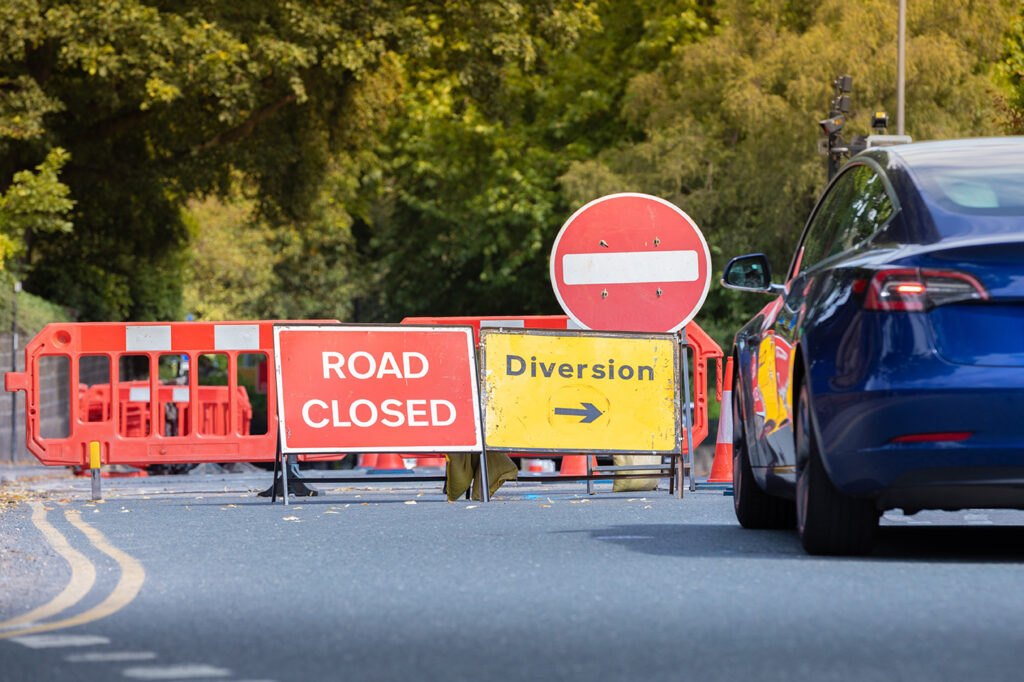In 2025, the state of UK roads remains a serious concern. The latest report from the Asphalt Industry Alliance (AIA), titled the ALARM Survey, highlights the alarming state of local roads and their rapid deterioration. The report reveals that over one third of local roads in the UK could fail within the next five years, raising significant concerns for road safety, car maintenance, and overall driver safety.
The ALARM Survey 2025: A Wake-Up Call for Road Safety
The ALARM Survey, which is conducted annually by the Asphalt Industry Alliance, provides a detailed overview of the state of local roads in the UK. The 2025 edition paints a bleak picture, with a staggering £14 billion needed to bring the nation’s roads up to standard. The report finds that local councils are struggling to keep up with the growing backlog of potholes and damaged roads. In fact, the ALARM Survey reveals that nearly a third of local roads are in urgent need of repair, with the situation expected to worsen in the coming years.
Nigel Havers’ Campaign for Pothole Repair: A Call to Action
Actor and road safety campaigner Nigel Havers has been vocal in his criticism of the government’s handling of road repairs. Havers, who has long been an advocate for improving road safety, has launched a campaign to fix potholes across the UK. He argues that the state of local roads is not only a major inconvenience but also a serious threat to public safety.
In his campaign, Havers has called on local authorities to prioritise pothole repairs and improve road maintenance. He has emphasised that the current situation puts both drivers and pedestrians at risk. “Potholes are not just a nuisance; they can cause serious accidents, damage to vehicles, and even injury to road users,” Havers said. “The government must take immediate action to fix the country’s crumbling infrastructure.”
Political Responses: A Lack of Action?
The state of UK roads has also sparked responses from politicians across the country. Despite calls for urgent action, many local authorities are struggling with limited budgets and resources. In response to the ALARM Survey, local government leaders have acknowledged the growing crisis but have emphasised the financial constraints they face.
Councillor James Jamieson, Chairman of the Local Government Association, commented: “Local roads are the backbone of our transport network, but councils are facing a huge funding gap. Without the necessary investment, we risk seeing more potholes and road failures in the coming years.”
Politicians have urged the government to allocate more funding to local authorities to address the road repair backlog. However, critics argue that the current funding model is inadequate, and without a long-term solution, the problem will continue to worsen.
Implications for Road Safety and Driver Safety
The implications of the deteriorating state of UK roads are far-reaching. As highlighted in the ALARM Survey, the condition of local roads directly affects road safety and driver safety. Potholes, cracks, and damaged surfaces increase the risk of accidents, especially for vulnerable road users such as pedestrians and cyclists.
For drivers, the poor state of the roads can lead to car damage, including tire blowouts, suspension issues, and even structural damage. According to a recent article in Fleet News, one-third of local roads are at risk of failure within the next five years, which could lead to an increase in accidents and car maintenance costs. Companies with fleets may face higher repair bills as a result of the poor condition of roads, impacting their bottom line.
Pedestrian and Cyclist Safety: A Growing Concern
The deterioration of local roads also has significant implications for pedestrians and cyclists. Many local roads lack the necessary infrastructure, such as proper footpaths and cycle lanes, to protect vulnerable road users. As the condition of the roads worsens, pedestrians and cyclists are increasingly at risk of accidents.
The charity Brake, which campaigns for road safety, has warned that the poor state of UK roads is putting vulnerable road users in danger. “The government must take immediate action to repair our roads and make them safer for everyone, especially those who are walking or cycling,” said Julie Townsend, Deputy Chief Executive of Brake.
Cyclists, in particular, are at risk of accidents due to potholes and uneven surfaces. The rise in the number of cycling fatalities in recent years has drawn attention to the need for better infrastructure and road maintenance. “A failure to fix potholes and repair roads will only increase the risks for cyclists, making our roads more dangerous for everyone,” added Townsend.
The Role of Companies with Fleets: Increased Costs and Safety Risks
For companies that operate fleets of vehicles, the deteriorating state of local roads presents both safety and financial challenges. The increased risk of car damage, higher maintenance costs, and potential accidents can have a significant impact on businesses.
Fleet operators may face rising repair costs due to potholes, damaged surfaces, and the need for frequent vehicle maintenance. Additionally, accidents caused by poor road conditions could lead to higher insurance premiums, loss of productivity, and legal liabilities. As road safety deteriorates, companies must also consider the safety of their drivers, especially if they rely on long-distance travel or have employees who regularly use local roads.
The charity Driving for Better Business, which advocates for improved fleet safety, has stressed the importance of road safety training for fleet drivers. “Companies must ensure that their drivers are equipped to handle the challenges posed by deteriorating roads,” said the organisation. “This includes providing drivers with the necessary skills to avoid accidents and minimize damage caused by poor road conditions.”
Conclusion: A Call for Action on Road Safety
The ALARM Survey 2025 highlights the urgent need for investment in the UK’s road infrastructure. The growing number of potholes, road failures, and damaged surfaces poses a serious threat to road safety, driver safety, and the safety of pedestrians and cyclists. Campaigns like that of Nigel Havers and calls from charities like Brake and Driving for Better Business underscore the need for immediate action.
With one-third of local roads at risk of failure within the next five years, the time to act is now. If the government and local authorities fail to address the road repair backlog, the safety of everyone on the roads – from drivers to vulnerable pedestrians and cyclists – will continue to be at risk.
For businesses with fleets, the implications of poor road conditions are clear: increased repair costs, higher insurance premiums, and a greater risk of accidents. Investing in safer roads is not just a matter of infrastructure – it’s a matter of public safety and long-term economic sustainability.



